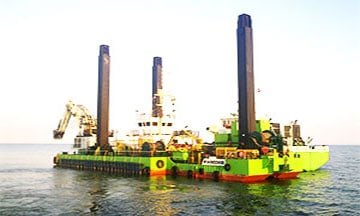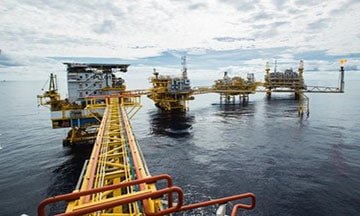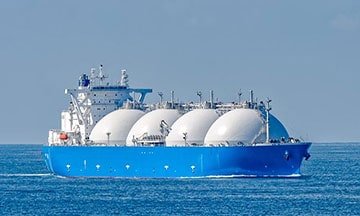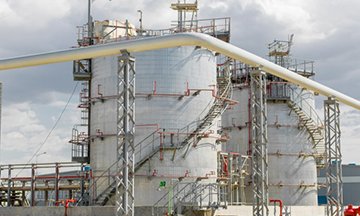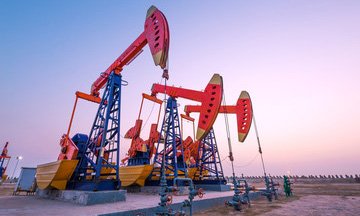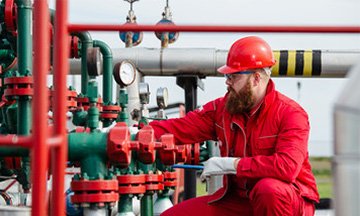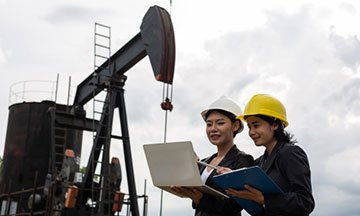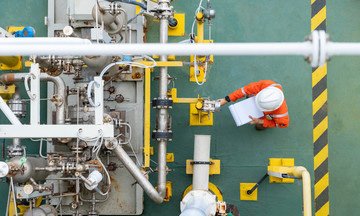Oil and Gas Industry Overview
Course Overview
Oil and gas reserves of a nation are considered to be its most important asset. The success of the oil and gas industry plays a huge role in the success of the economy of a nation.
Simply possessing rich resources of oil and gas does not make a nation prosperous and powerful. More importantly, proper exploration, extraction, processing and supply of these resources in time to places of high demand determine how successful and developed an organisation and a nation could be.
The risk of hazards and mishaps in this industry is high, and extra care should be taken when undertaking any responsibility for oil and gas exploration and production.
This Zoe’s Oil and Gas Industry Overview training course will empower you with a comprehensive understanding of all important aspects related to the oil and gas industry.
The Oil and Gas Industry Overview course provides one with an overview of operations undertaken at oil and gas industries as well as best practices and activities undertaken by oil and gas operations.
This Oil and Gas Industry Overview training course will build your capabilities and equip you to work in the oil and gas industry across roles and the organisation.
Course Objectives
The primary objective of this Oil and Gas Industry Overview training course is to empower professionals with—
- detailed understanding and knowledge of basics of the oil and gas industry
- the required confidence and knowledge to impart training to experienced professionals in the domain
- the necessary foresight and analytical skills to predict challenges and set corrective measures before occurrence to minimise impact on the organisation
- the understanding and experience to devise simple solutions for troubleshooting and fixing any emergencies
- the patience and understanding to analyse a problem well and devise concrete next steps, to minimise the negative impact on the organisation
- the ability to contribute to increased organisational value and branding
- the confidence and capabilities to handle higher roles and responsibilities that could come your way, making the best of every single opportunity coming to your work
- the knowledge to enhance the current processes and systems surrounding oneself, thus aiding operational efficiency and accuracy
- a sense of satisfaction by contributing to employee health and safety by ensuring all practices and systems adhere to the expected standards and conventions
- the required confidence and discussion to assume higher roles and responsibilities with the organisation or from the outside
Training Methodology
All courses are Zoe Talent Solutions are re-checked before commencement of a training course to ensure that the content is best suited to the training audience.
Lectures are delivered by highly experienced professionals from the relevant domain, with detailed audio-visual presentations for ease of reference.
Trainees are assigned group assignments, projects, etc. to encourage them to interact with the rest of the training group and actively participate in the training program.
Role-plays also help trainees put theory to practice and learn from the experiences of other participants. Situational analysis and experiential learning form the core part of the training.
This innovative and unique approach to training was devised by Zoe Talent Solutions and is followed for all its training courses. It is called the Do–Review–Learn–Apply Model.
Organisational Benefits
By professionals undertaking this training course, their organisations will derive the following benefits:
- More experienced and trained professionals handling various aspects and functions of the oil and gas industry
- Application of advanced techniques and methods to increase efficiency and reduce redundancy, thereby contributing to organisational development
- Adherence to all required standards and benchmarks of operation, thereby building organisational credibility to compete with other organisations in the market
- Regular inspections and audits of sites of operation to check for possible risks and immediate next steps to mitigate these to prevent damage and loss to property, life and the environment
- Regular maintenance of machinery and equipment, thereby prolonging machine life and reducing costs and expenses on machinery
- Organisational growth and development because of reduced costs and increased investments as a result of better organisational credibility
- Frequent and free training of existing employees to handle new technology and to observe strict discipline when working in accident-prone sites
Personal Benefits
Professionals will derive the following benefits from this course:
- Comprehensive understanding of all aspects of the oil and gas industry projects
- Advanced knowledge and understanding to apply recent technologies to automate key processes in the oil and gas value chain, contributing to operational efficiency
- Increased awareness and information about all necessary legislations and standards to be followed by an organisation involved in oil and gas trade
- Enhanced perspective and foresight to foresee challenges and risks and devise corrective steps to ensure minimal or no impact on the organisation
- Increased confidence and experience to conduct ongoing training for professionals in the oil and gas industry to ensure optimal performance and promote their career progression
- A sense of pride and satisfaction contributing to organisational growth through maximum automation and improved employee performance, in turn demonstrating one’s ability to undertake higher roles and responsibilities within or outside one’s organisation, fostering faster career growth and progression
- Greater confidence, exposure and experience to conduct regular checks for gaps to introduce faster and better processes and systems, thereby proving potential and inviting multiple exciting opportunities for growth
Who Should Attend?
- Senior management of an organisation who play a key role in strategic decisions for any process enhancements in the organisation
- Managers and supervisors overseeing various operations involved in oil and gas production
- Engineers and other staff executing various functions in the oil and gas chain
- Vendors and suppliers involved in the supply of raw material or finished product at some stage in the oil and gas chain
- Internal and external auditors responsible for ensuring adherence to all required standards of practice and operation as part of the oil and gas industry
- Legal and financial advisors providing legal and financial advice, respectively, to the management of the organisation
- Potential investors interested in making investments in oil and gas organisations
- Any other professional interested in knowing more about the oil and gas industry
Course Outline
The Oil and Gas Industry Overview course covers the following areas important to understand the oil and gas industry:
Module 1 – Primary Resources of the Oil and Gas Industry
- Crude oil
- Natural gas
- Condensates
Module 2 – Upstream Sector Activities of the Oil and Gas Industry
- Exploration
- Drilling
- Production
Module 3 – Midstream Sector Activities of the Oil and Gas Industry
- Distribution
- Storage
- Processing
- Fractionation
- Marketing
Module 4 – Downstream Sector Activities of the Oil and Gas Industry
- Oil refining
- Supply and trading
- Product marketing (wholesale and retail)
Module 5 – Utility Systems in Oil and Gas
- Process control systems
- Digital oilfield
- Power generation, distribution and drives
- Flare and atmospheric ventilation
- Water systems
- Chemical and additives
- Telecom
Module 6 – Reserves and Resources
- Reservoir rock types
- Structures – folds, fractures, faults
- Reservoir fluids and composition
- Volumetric estimates and classification
Module 7 – Emissions and Environmental Effects
- Indigenous emissions
- Greenhouse emissions
- Carbon capture and sequestration
Module 8 – Major Challenges Faced by the Oil and Gas Industry
- Reducing costs to remain competitive
- Improving performance to ensure asset valorisation
- Improving environmental footprint to meet stringent standards
